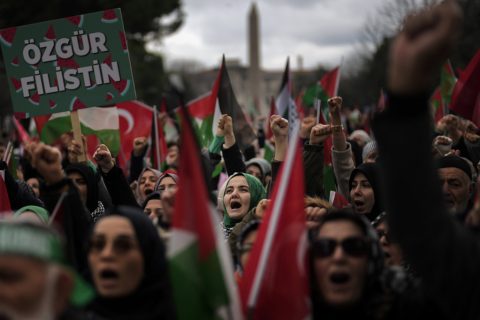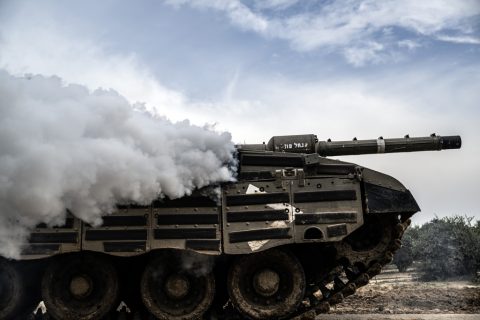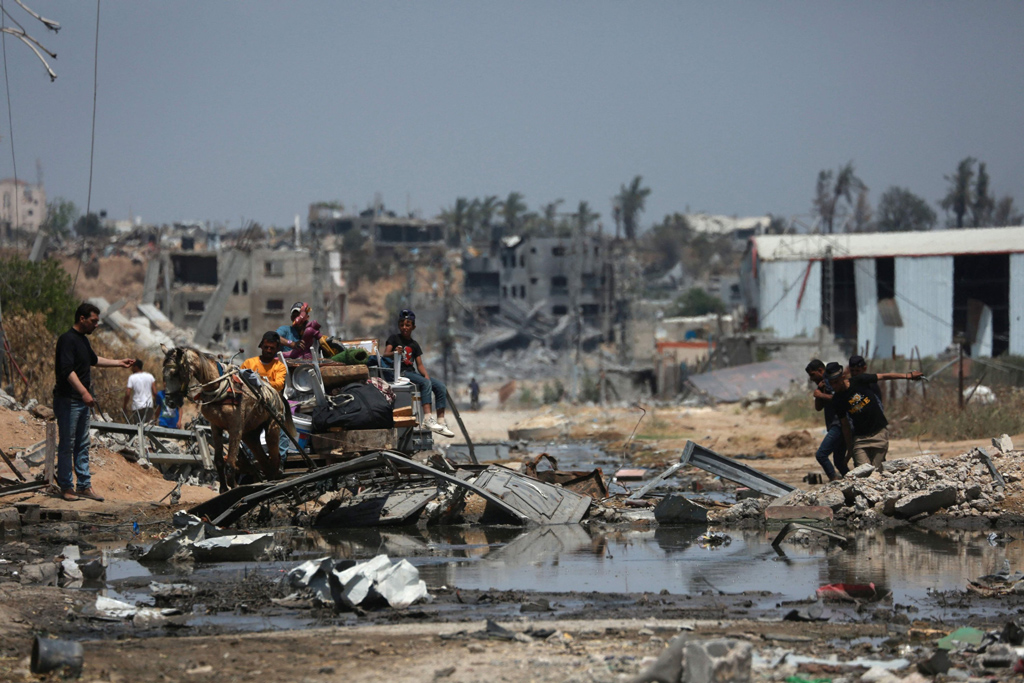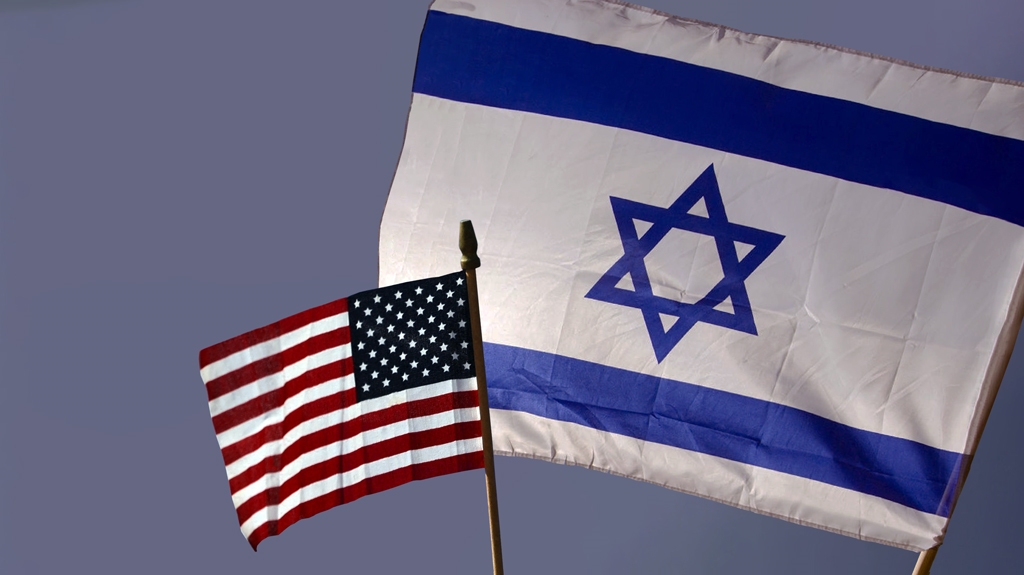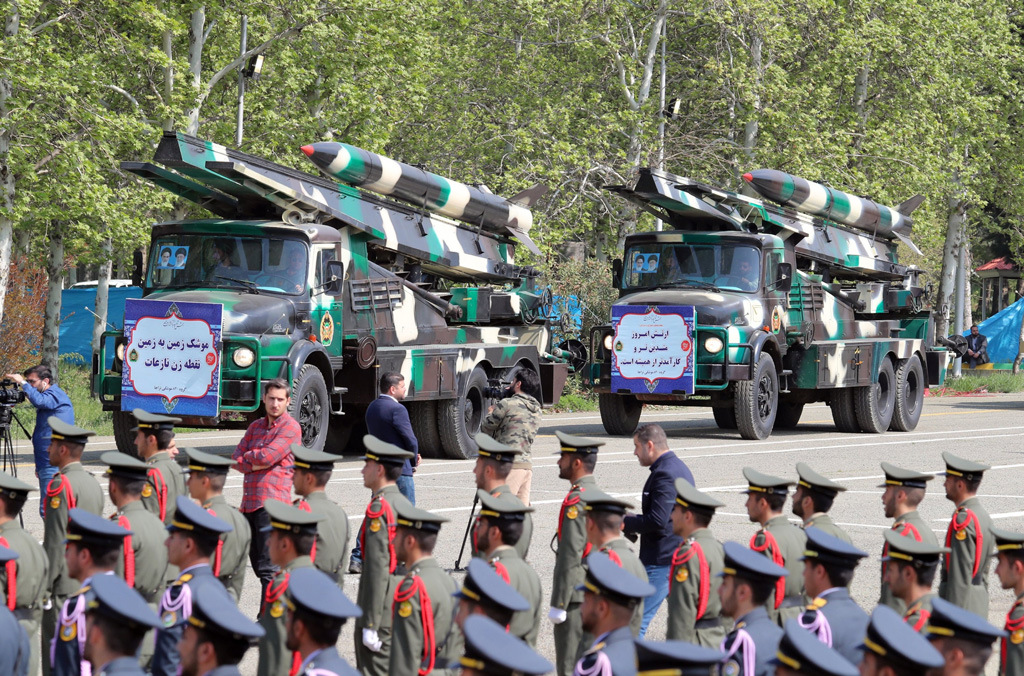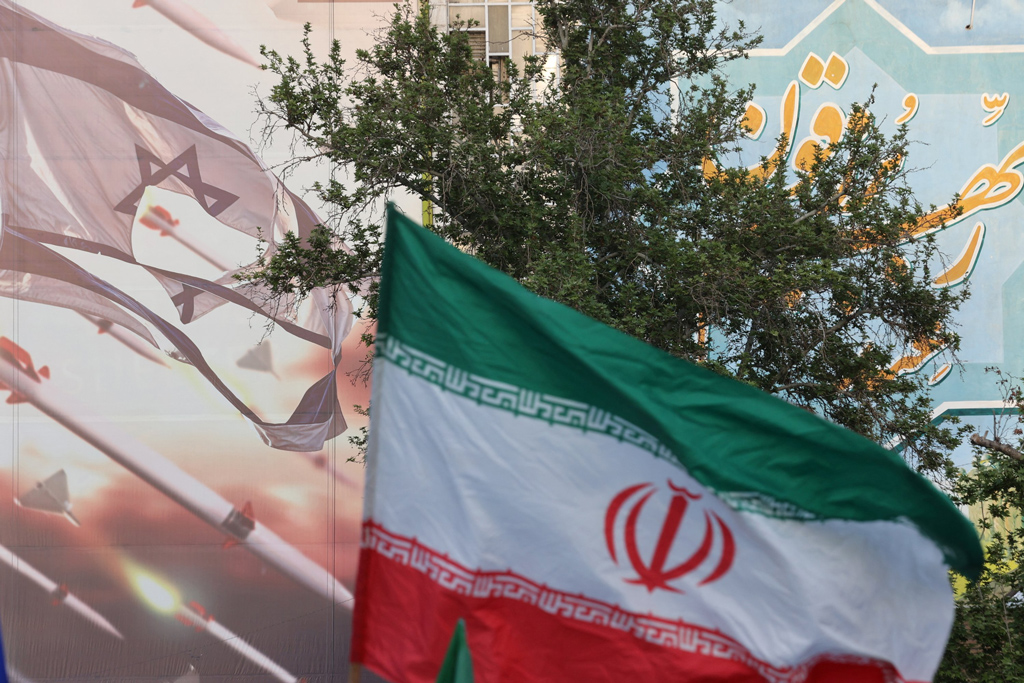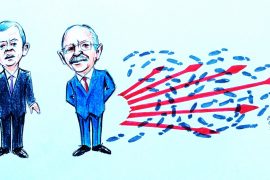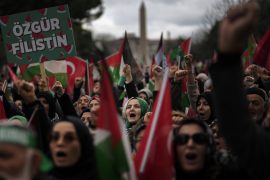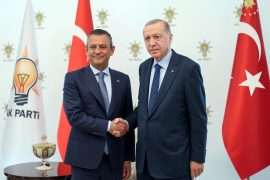Israel
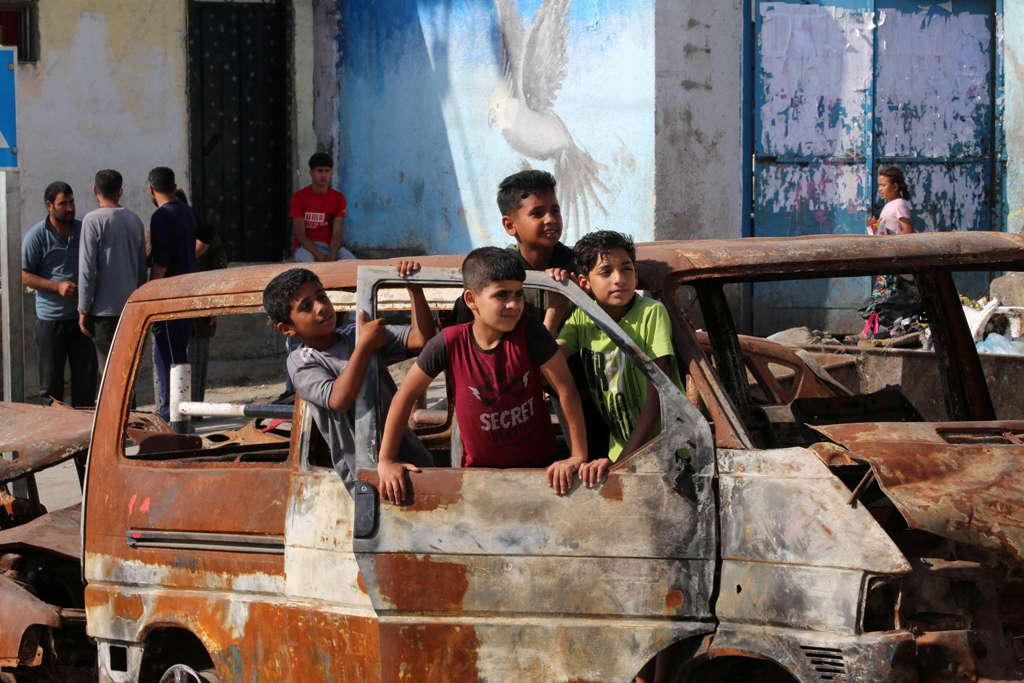
Middle powers should join the global intifada
| OpinionAlthough the hegemonic circles such as most Western countries and the leading global financial and …
-
Opinion
Middle powers should join the global intifada
By Muhittin AtamanAlthough the hegemonic circles such as most Western countries and the leading global financial and economic institutions have been supporting Israel and its ongoing genocide against the innocent Palestinians both in the Gaza Strip and the West Bank, the majority of the world public opinion takes the side of humanity, protesting against the Western-supported Israeli genocide.
-
Opinion
Diplomatic push for peace: Türkiye’s efforts in Gaza
By Muhittin AtamanSince the early days of the post-Oct. 7 period, Türkiye has been insistently trying to de-escalate the tension in Palestine and to find a way for a lasting cease-fire. In the wake of the Al-Aqsa Flood and the first Israeli reactions, Türkiye called both sides not to escalate the tension. However, with the full support of the global Western powers, the Israeli side intensified its ruthless military campaign against innocent Palestinian civilians, the majority of whom are children and women, with full steam. Türkiye has been following an exceptional policy toward the Gaza crisis. It has taken several significant initiatives since Oct. 7.
-
Opinion
Hamas’ acceptance of ceasefire and Israel’s Rafah operation
By Kadir ÜstünDespite Hamas announcing its acceptance of the ceasefire on Monday, Israel stated that the agreement did not meet their desired level. However, they announced that they would send a delegation to Doha for negotiations. Additionally, they indicated that the Rafah operation would proceed as planned, showing no intention to heed Washington's demands. Despite CIA Director Bill Burns being in the region for the Doha talks and the Biden administration's clear opposition to the Rafah operation, the Netanyahu government shows no signs of backing down. Reports of the Biden administration halting arms shipments to Israel, thus delaying Netanyahu's Rafah operation, had made Hamas' acceptance of the ceasefire a critical turning point. However, Netanyahu's efforts to both continue and expand the conflict from the outset pose the biggest obstacle to ceasefire efforts.
Bu Konuda Daha Fazla
-
Normalization of Israel-Saudi ties under US sponsorship
By Kadir ÜstünIn recent days, news suggesting progress in the discussions between the United States and Saudi Arabia, and approaching the stage of agreement, could herald a new era in the Middle East. Saudis are seeking support from the United States to develop 'peaceful' nuclear technology in response to Iran's nuclear capacity, as well as security assurances in the event of a potential war. The agreement, which includes cooperation in advanced technology and distancing from China, is critical for the Biden administration, as its support depends on it. However, it will be challenging for a government led by Netanyahu, who has always opposed the establishment of a Palestinian state, to accept the insistence of the Saudis on stopping the Gaza war and a two-state solution. The Biden administration aims to use the normalization of relations between Israel and Saudi Arabia to sideline the Gaza issue and appear to have 'resolved' the Palestinian issue by the November elections, but Netanyahu remains the biggest obstacle to this.
-
Why Arabs do not support Palestine?
By Muhittin AtamanIt is surprising to see that the Arab governments and citizens did not react effectively to the latest developments in the Gaza Strip. Although observers have been expecting a more effective reaction from Arab governments and citizens, they have largely remained indifferent to the ongoing genocide against the Palestinian people, living not only in the Gaza Strip but also in the West Bank. The streets of Arab states are unexpectedly very quiet compared with the streets of many non-Arab and non-Muslim countries.
-
The ‘tragedy’ of US policy vis-a-vis Israel
By Kadir ÜstünThe Biden administration seems to have at least temporarily succeeded in preventing Iran's direct attack on Israel from escalating into an uncontrolled war. The White House conveyed the message to Israel through various channels that any attack on Iran should be 'proportional,' also signaling to the Netanyahu government that US support for Israel would be limited to defense. With the assistance of the United States, the United Kingdom, and Jordan, Iran's UAVs and missiles were intercepted before reaching Israeli airspace, making the job of the Iron Dome relatively easier. However, Iran's low-intensity and controlled attack with low-cost weapons demonstrated that in a more 'real' war, Israel's task would be far from easy. The attack, which brought the urgency of Israel's defense to the forefront, seems to pave the way for a vote on a long-delayed aid package for Israel, Ukraine, and Taiwan in the House of Representatives. The fact that American foreign aid could reach the approval stage thanks to the attack on Israel indicates how much the issues that bring Republicans and Democrats together have decreased.
-
The Israel-Iran war gamble
By Murat YeşiltaşThe Israeli attack on the Iranian Consulate in Damascus has escalated regional tensions to unprecedented heights, once again thrusting the intricate geopolitics of the Middle East into the spotlight. Iran’s retaliation to this aggression has resonated not only within the region but also on a global scale. Its response was twofold: to display their military prowess and to convey a political message to the international community. This marked the first instance since 1973 of a state responding militarily to Israel at a conventional level, thereby disrupting the longstanding status quo of Israeli immunity. Through these actions, Iran seeks to enhance its deterrence against regional and global actors while simultaneously solidifying its domestic political position.
-
Middle East cannot be left in vortex of Iran-Israel...
By Burhanettin DuranThe direct confrontation between Iran and Israel remains under control – for now. Yet, it points to an emerging equilibrium in the region. There was already talk of escalating tensions in the Middle East around Gaza and Palestine in the wake of the Oct. 7 attack.

